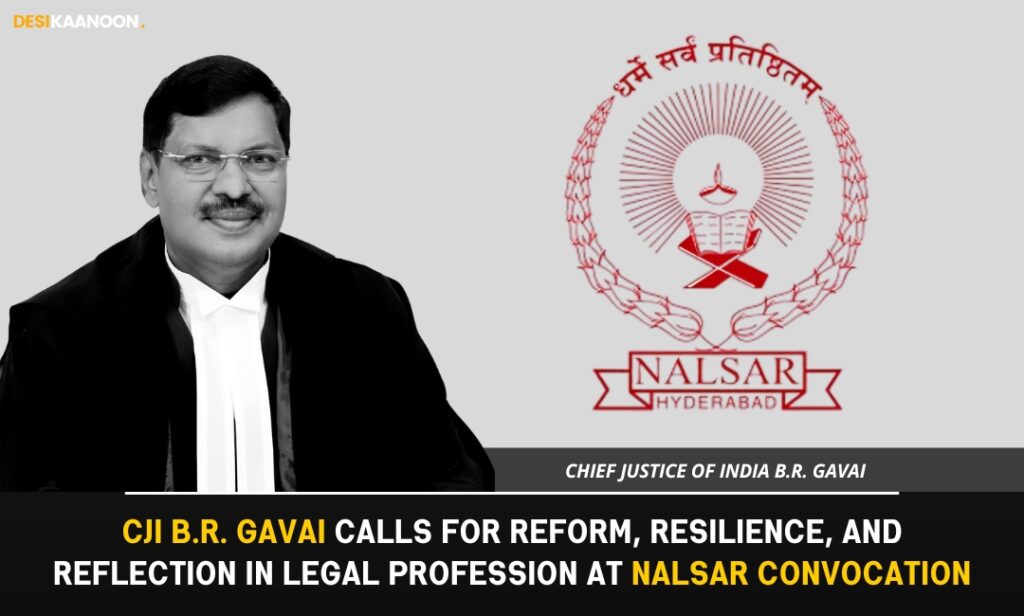Shreya Gupta
On 11th July, 2025, in a thought-provoking and candid address at the 22nd Convocation of National Academy for Legal Studies And Research (NALSAR) University of Law, Chief Justice of India B.R. Gavai delivered a powerful critique of the Indian legal profession, touching on issues ranging from mental health and structural inequality to the misplaced emphasis on foreign degrees.
Acknowledging the emotional toll and intense demands of the legal profession, Justice Gavai highlighted the long working hours, high expectations, and often ruthless culture that characterizes legal practice. He stressed that lawyers frequently feel pressured not only to succeed but also to project an image of success, which can lead to emotional burnout and isolation. Quoting Audre Lorde, he encouraged young lawyers to prioritise self-care, not as an indulgence, but as an act of resilience and preservation in a demanding field.
Justice Gavai also raised critical concerns about structural inequalities embedded in the Indian legal system. Drawing on a 2023 study on the American legal profession, he pointed out that a lawyer’s career trajectory is heavily influenced by their law school’s reputation—an observation that he believes holds true in India as well.
He noted that graduates from prestigious National Law Schools often enjoy better career opportunities, not necessarily due to superior skills but because of entrenched perceptions. He called for introspection within the legal fraternity, noting that inequality often hides behind unspoken biases, missed opportunities, and inaccessible networks, particularly for students from smaller or lesser-known institutions.
Furthermore, Justice Gavai lamented the state of legal education and the lack of transparent, merit-based hiring processes in India. He pointed out that many who return with foreign degrees are disillusioned by unwelcoming institutions and stagnant systems back home. To counter this, he underlined the irreplaceable importance of mastering the legal fundamentals—constitutional law, contracts, procedural codes, and criminal law which form the backbone of legal practice. No degree or exposure, he asserted, can substitute for a solid grasp of the basics.
On the subject of mentorship, Justice Gavai shared a personal reflection, attributing part of his own journey to the guidance and belief extended to him by a mentor. He urged senior lawyers and judges to actively support and mentor young professionals, recognizing the transformative impact such support can have. Concluding his speech, he encouraged the graduates to embrace uncertainty, take time to pause, and not succumb to the relentless pressure to constantly prove themselves. His message was one of hope, resilience, and integrity an appeal to the next generation of lawyers to build their careers with both courage and compassion.
Instagram: Click Here
LinkedIn: Click Here
For Collaboration and Business: info.desikaanoon@gmail.com

